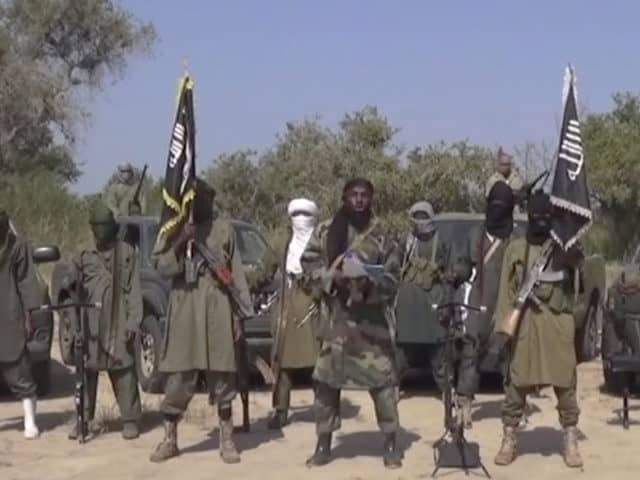Nigerian Governor Admits Military ‘Overwhelmed’ by Boko Haram

A Nigerian state governor warned on Wednesday that Nigeria’s military is struggling to defend the country from the Islamic terror group Boko Haram, which has recently ramped up the intensity and frequency of its attacks in northeastern Borno State.
“The reality we can all say, and I personally as security scholar, the reality I can see is that our military is overwhelmed. Our military is no longer in a position to single-handedly tackle this menace effectively,” the governor of Nigeria’s Ekiti State, Kayode Fayemi, said Wednesday, according to Nigeria’s Punch newspaper.
Fayemi made the admission during a meeting with Borno State Gov. Babagana Zulum to discuss Boko Haram’s November 28 attack on dozens of rice farmers in Borno State’s Zabarmari village in which at least 76 people were killed and an unknown number of women were abducted.
“[W]hat happened in the last three days is by far beyond any imagination, it was a massacre and it was one that none of us could come to terms easily,” Fayemi said on Wednesday.
The Nigerian Army needs support to properly address crimes such as “insurgency, banditry, kidnapping, and armed robbery,” committed by Boko Haram in Borno State and by other militants across the country, the governor added.
“It is not a criticism of our military, if one were to suggest a coalition beyond that will even include our neighboring countries, who are probably more experienced in fighting an asymmetrical war. It will not be a loss of our pride as a country,” Fayemi assured.
“We can’t bring back the people we have lost in the last couple of days, but if we do not take the necessary steps the entire nation will be consumed by this insurgency,” Fayemi warned.
Borno State Gov. Zulum agreed with Fayemi’s recommendations on Wednesday. He noted that the “underlying causes” of Boko Haram’s Islamist insurgency against Nigeria must be examined to properly address the threat posed by the jihadists.
“We need to address the underlying causes of the insurgency while appreciating the effort of the federal government in implementing some policies that are geared towards addressing poverty in the entire nation. Borno State deserves more,” Zulum said.
Boko Haram claimed responsibility on December 1 for the November 28 massacre of Borno State rice farmers.
“The main group loyal to shadowy [Boko Haram] leader Abubakar Shekau said in a video Tuesday it was ‘responsible for what happened around Maiduguri in recent days … especially in Zabarmari,'” Deutsche Welle reported. “Shekau, in a three-minute video, said his group killed 78 farmers because ‘the farmers arrested and handed one of its brothers to the Nigerian Army.'”
This detail supports a claim local Parliament member Ahmed Satomi made on November 29 that the farmers “were attacked because they had on Friday [November 27] disarmed and arrested a Boko Haram gunman who had been tormenting them.”
Nigerian authorities have so far found the bodies of 76 victims from the gruesome attack, in which the terrorists reportedly tied up the laborers and slit their throats.
“You thought you would apprehend our brethren and hand him over to the military and live in peace?” a Boko Haram jihadist said in Tuesday’s video.
The November 28 massacre is one of the deadliest Boko Haram attacks in Borno State in recent months. The region borders the Lake Chad Basin, and the terrorist group’s attacks often spill over into neighboring countries. Borno State has been Boko Haram’s stronghold for several years and continues to be the main target of its ongoing Islamist insurgency.
Photo: Video Image/AP Photo
Link: https://www.breitbart.com/africa/2020/12/04/nigerian-governor-admits-military-overwhelmed-boko-haram/




